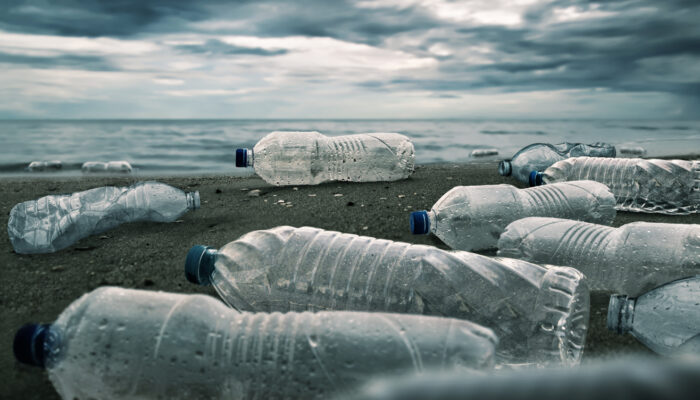Are you ready for the war on Plastics?

Will you be a winner in the war on plastic?
The opening salvo was fired long before the Blue Planet II documentary, but just over a year ago, plastic became public enemy number one, even though it remains so pervasive in our lives. Plastic has been responsible for a huge number of advances over the years, but now it faces a dilemma. When is a plastic a “bad plastic”? It would appear as though plastics can be separated into good and bad plastics based on the amount of use that you can get from them.
Single Use plastics = Bad,
Multi-use/recyclable plastics = Good
That therefore causes a significant challenge for the food and drink packaging industry which is probably at the centre of single use plastic, together with the food and drink retail industry.
Just rooting around in my bin and recycling, it’s clear to see from the layman’s perspective why the industry is facing such a massive problem. Over half of the plastic that my family use on a weekly basis is either; “Not currently recycled”; or “check local recycling”. The same applies when you go to a fast food restaurant, in their efforts to recycle, they are clearly trying to recycle cups, cup lids and straws, but most of the cardboard food packaging is going to waste.
There have been some significant changes over recent weeks and the appearance of Michael Gove on the One Show in April certainly highlighted the progress that was being made. A well-known fast food chain had contracted with a paper straw manufacturer in South Wales to help them remove all plastic straws from their outlets this year. There had been some fairly rigorous testing of the straws to ensure that they didn’t disintegrate, so there may well have been some R&D performed in improving the manufacturing process.
However, it is not just a problem for the food and drink industry, there is also a significant problem with the recycling industry as different councils responsible for the co-ordination of local recycling schemes have very different contracts with the various providers, such that moving from one council to another could see completely different things being able to be recycled. This was one point picked up on by Michael Gove who said HM Government were planning on bringing through some legislation for universal recycling across the country.
What’s the solution for the food and drink packaging industry?
Well, I don’t suppose it will be too long before consumers are expecting that all of the plastic being used in packaging is either recyclable or made from recycled plastic or even better recyclable and made from recycled plastic but is that going to be possible if most plastics can only be recycled a small number of times before they are downcycled into lower value products.
I suppose it’s possible that more things may end up in aluminium or cardboard packaging, but is it practical? One of the main benefits with plastic is its weight and strength. So would more cardboard and more aluminium push up food prices.
This is where we go full circle back to who the winners might be, it maybe those companies that are looking for innovations in plastics. Investigating whether it Is possible to improve the recyclability of plastics such that they can be recycled more times before downcycling, can you protect the plastic before use to prevent the absorption of the materials into the plastic that reduces it’s potential to be recycled.
If you are thinking about innovating in plastics you might want to keep an eye on Innovate UK, the Government’s Innovation Strategy supporter if you are looking for some funding for a new project, but if you have already started one, then Research and Development Tax Relief will allow you to recoup roughly 25% of the costs back as a tax saving.
What’s most important from the perspective of R&D Tax Relief is that you have to be trying to achieve something that is technically or scientifically challenging, you ultimately don’t have to succeed. So, as we have already highlighted anything that enhances the potential to recycle plastic more will certainly be meeting this brief.
There’s nothing stopping you from obtaining a grant and then claiming Research and Development Tax Relief, you just won’t get the best tax relief if you’re an SME, you’ll just get back around 10% of your eligible costs. If you think you might have a claim for R&D Tax Relief, or if you are thinking of applying for a grant from Innovate or Horizon 2020 (the EU funding body for collaborative R&D) then why not give us a call and we’ll see if we can help you.
Call Simon on 01424 225345 to start giving you the extra ammunition to win the war.

